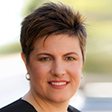7 Questions to Ask Before Hiring a Financial Professional
You should interview several people to make sure you find the best match for you.

Profit and prosper with the best of Kiplinger's advice on investing, taxes, retirement, personal finance and much more. Delivered daily. Enter your email in the box and click Sign Me Up.
You are now subscribed
Your newsletter sign-up was successful
Want to add more newsletters?

Delivered daily
Kiplinger Today
Profit and prosper with the best of Kiplinger's advice on investing, taxes, retirement, personal finance and much more delivered daily. Smart money moves start here.

Sent five days a week
Kiplinger A Step Ahead
Get practical help to make better financial decisions in your everyday life, from spending to savings on top deals.

Delivered daily
Kiplinger Closing Bell
Get today's biggest financial and investing headlines delivered to your inbox every day the U.S. stock market is open.

Sent twice a week
Kiplinger Adviser Intel
Financial pros across the country share best practices and fresh tactics to preserve and grow your wealth.

Delivered weekly
Kiplinger Tax Tips
Trim your federal and state tax bills with practical tax-planning and tax-cutting strategies.

Sent twice a week
Kiplinger Retirement Tips
Your twice-a-week guide to planning and enjoying a financially secure and richly rewarding retirement

Sent bimonthly.
Kiplinger Adviser Angle
Insights for advisers, wealth managers and other financial professionals.

Sent twice a week
Kiplinger Investing Weekly
Your twice-a-week roundup of promising stocks, funds, companies and industries you should consider, ones you should avoid, and why.

Sent weekly for six weeks
Kiplinger Invest for Retirement
Your step-by-step six-part series on how to invest for retirement, from devising a successful strategy to exactly which investments to choose.
You've worked hard and saved money for retirement. The last thing you need is to lose the money in a volatile stock market or with an investment professional that may not understand your unique situation. You need someone who understands the market and will work with you to create a plan that reaches your financial goals.
Don't hire the first person who is recommended to you.
Take time to interview several financial professionals before making a decision of who will invest your money. Below are seven questions you should consider asking them. If anyone can't (or won't) answer questions to your satisfaction, he or she may not be the best match.
From just $107.88 $24.99 for Kiplinger Personal Finance
Become a smarter, better informed investor. Subscribe from just $107.88 $24.99, plus get up to 4 Special Issues

Sign up for Kiplinger’s Free Newsletters
Profit and prosper with the best of expert advice on investing, taxes, retirement, personal finance and more - straight to your e-mail.
Profit and prosper with the best of expert advice - straight to your e-mail.
1. Can I ask you a few questions?
Seems ridiculous to ask this question, but if they're not open to talking to you about how they operate their business, their training and background or investment style, they may not be open to answering questions about how your money is invested. It might be better to find someone else who is willing to answer your questions.
2. What's your investment philosophy?
You're investing your future with this company and person, so it's important you can talk to them in terms you both understand. If they put money in what seem like complicated investments, you will likely have an uphill battle to decipher the basic elements of your account. It's better to have someone who has a similar philosophy to your own and can explain what they're doing in a way that makes you comfortable.
3. Are you fully licensed?
If they're only licensed for insurance, it's likely they will only recommend insurance products in a financial plan. While that may make sense for your portfolio, it may not be the best option. When a financial adviser is fully licensed it means they have securities and insurance licenses and are required to have ongoing training. For example, I am fully licensed, which means I have Series 7 and 66 and am allowed to sell nearly any investment. I also have a life insurance license, which allows me to sell life, long-term care and annuities.
4. What kind of continuing education do you practice?
It's important to be constantly learning, especially in this field that can change with the stock and bond markets as well as the law. As a fully licensed professional, I have the Accredited Asset Management Specialist (AAMS) designation, which requires that I have tenure in the industry, additional continuing education and subscribe to a code of ethics.
5. How do you get paid?
The financial industry does a good job of confusing people about how we get paid but that is not our intention. In fact, if you're confused at the answer you get to this question, that person may not be right for you. As a fully licensed financial adviser, I typically get paid in one of three ways, depending on the services I provide to the client: via a commission for the products I sell, a money management fee as a percent of assets under management or a financial planning fee for creating a plan you will execute.
6. How do you invest in yourself?
It's my belief and practice that I have to take time for myself and my family so that I can best serve my clients. If I am always working, it can feel like I can hardly breathe, and I am not enjoying my work. Taking breaks and vacations helps reset and renew so that I can truly focus on what I love—helping my clients reach their financial goals.
7. Why did you become a financial professional?
The answer to this question tells you how passionate they are about their work and connects you to them in a personal way. I became a financial professional to help women understand money and investments in a way that wasn't available when I was growing up. I want you to have education about what's right for your personal financial future. That truly matters to me.
When I sit down with prospective clients, I want to get to know them and I want them to know me. Whether you work with me or someone else, it's important that you are comfortable and understand what's happening with your investments. You've worked hard and your money should work for you in ways that make sense for your financial goals. Don't be afraid to ask questions before hiring a financial professional.
Shanna Tingom is the co-founder of Heritage Financial Strategies. Her specialty is working with female entrepreneurs, business leaders and individuals experiencing life transitions.
Shanna Tingom is a Registered Representative, securities offered through Cambridge Investment Research, Inc., a broker-dealer, member FINRA/SIPC., Investment Advisor Representative, Cambridge Investment Research Advisors, Inc., a Registered Investment Adviser.
Cambridge and Heritage Financial Strategies are not affiliated.
Profit and prosper with the best of Kiplinger's advice on investing, taxes, retirement, personal finance and much more. Delivered daily. Enter your email in the box and click Sign Me Up.

Shanna Tingom is a registered representative, securities offered through Registered Representatives of Cambridge Investment Research, Inc., a Broker/Dealer, member FINRA/SIPC. Advisory services offered through Cambridge Investment Research Advisors, Inc., a Registered Investment Advisor. Cambridge and Heritage Financial Strategies are not affiliated.
-
 Dow Adds 1,206 Points to Top 50,000: Stock Market Today
Dow Adds 1,206 Points to Top 50,000: Stock Market TodayThe S&P 500 and Nasdaq also had strong finishes to a volatile week, with beaten-down tech stocks outperforming.
-
 Ask the Tax Editor: Federal Income Tax Deductions
Ask the Tax Editor: Federal Income Tax DeductionsAsk the Editor In this week's Ask the Editor Q&A, Joy Taylor answers questions on federal income tax deductions
-
 States With No-Fault Car Insurance Laws (and How No-Fault Car Insurance Works)
States With No-Fault Car Insurance Laws (and How No-Fault Car Insurance Works)A breakdown of the confusing rules around no-fault car insurance in every state where it exists.
-
 For the 2% Club, the Guardrails Approach and the 4% Rule Do Not Work: Here's What Works Instead
For the 2% Club, the Guardrails Approach and the 4% Rule Do Not Work: Here's What Works InsteadFor retirees with a pension, traditional withdrawal rules could be too restrictive. You need a tailored income plan that is much more flexible and realistic.
-
 Retiring Next Year? Now Is the Time to Start Designing What Your Retirement Will Look Like
Retiring Next Year? Now Is the Time to Start Designing What Your Retirement Will Look LikeThis is when you should be shifting your focus from growing your portfolio to designing an income and tax strategy that aligns your resources with your purpose.
-
 I'm a Financial Planner: This Layered Approach for Your Retirement Money Can Help Lower Your Stress
I'm a Financial Planner: This Layered Approach for Your Retirement Money Can Help Lower Your StressTo be confident about retirement, consider building a safety net by dividing assets into distinct layers and establishing a regular review process. Here's how.
-
 The 4 Estate Planning Documents Every High-Net-Worth Family Needs (Not Just a Will)
The 4 Estate Planning Documents Every High-Net-Worth Family Needs (Not Just a Will)The key to successful estate planning for HNW families isn't just drafting these four documents, but ensuring they're current and immediately accessible.
-
 Love and Legacy: What Couples Rarely Talk About (But Should)
Love and Legacy: What Couples Rarely Talk About (But Should)Couples who talk openly about finances, including estate planning, are more likely to head into retirement joyfully. How can you get the conversation going?
-
 How to Get the Fair Value for Your Shares When You Are in the Minority Vote on a Sale of Substantially All Corporate Assets
How to Get the Fair Value for Your Shares When You Are in the Minority Vote on a Sale of Substantially All Corporate AssetsWhen a sale of substantially all corporate assets is approved by majority vote, shareholders on the losing side of the vote should understand their rights.
-
 How to Add a Pet Trust to Your Estate Plan: Don't Leave Your Best Friend to Chance
How to Add a Pet Trust to Your Estate Plan: Don't Leave Your Best Friend to ChanceAdding a pet trust to your estate plan can ensure your pets are properly looked after when you're no longer able to care for them. This is how to go about it.
-
 Want to Avoid Leaving Chaos in Your Wake? Don't Leave Behind an Outdated Estate Plan
Want to Avoid Leaving Chaos in Your Wake? Don't Leave Behind an Outdated Estate PlanAn outdated or incomplete estate plan could cause confusion for those handling your affairs at a difficult time. This guide highlights what to update and when.